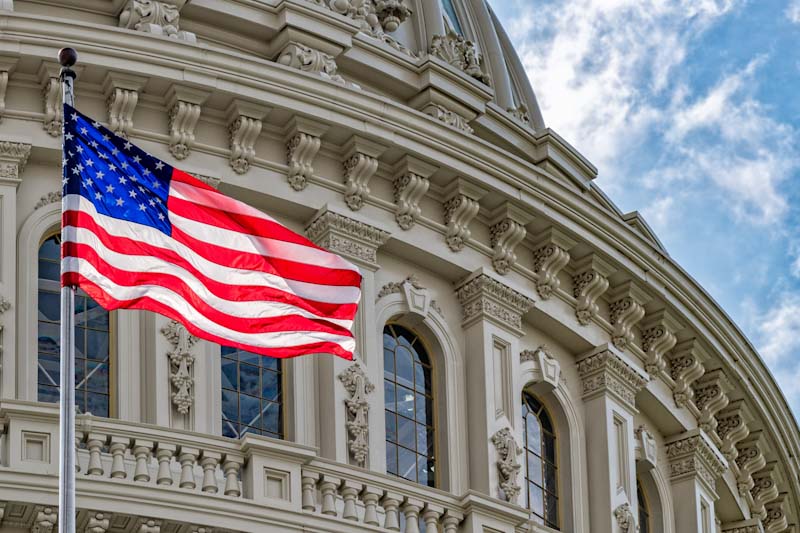This website uses cookies so that we can provide you with the best user experience possible. Cookie information is stored in your browser and performs functions such as recognising you when you return to our website and helping our team to understand which sections of the website you find most interesting and useful.
News
Legislative Update: Avoiding an End-of-Year Shutdown
The 116th Congress is attempting to wrap up as lawmakers race to get must-pass legislation through before they adjourn. The end is not coming easily; however, as House and Senate leaders are in serious negotiations to avoid a government shutdown and provide necessary aid to Americans as many COVID relief programs are set to expire at the end of the month. Below is a review of the legislation in play.
Save Our Seas 2.0
On Dec. 1, the Senate passed the Save Our Seas 2.0 Act (S. 1982), sending the bill to the President. The legislation introduced by Sens. Dan Sullivan (R-AK), Robert Menendez (D-NJ), and Sheldon Whitehouse (D-RI) will improve infrastructure as it promotes cleaner waterways. It provides states with $55 million annually through 2025 to support improvements in local post-consumer materials management, including recycling programs.
An additional $10 million per year will be available to local governments and nonprofits through grants to improve drinking water and wastewater infrastructure. The bill also promotes the development of materials that can fully degrade in the sea and requires the Commerce Department to report to Congress on innovative uses for plastic waste other than infrastructure. The bipartisan bill underwent many revisions over the year as several members of Congress and organizations provided input to shape the final legislative text. The bill now awaits President Trump’s signature.
COVID-19 Relief
House and Senate leaders — House Speaker Nancy Pelosi (D-CA), House Minority Leader Kevin McCarthy (R-CA), Senate Minority Leader Chuck Schumer (D-NY), Senate Majority Leader Mitch McConnell (R-KY)—have a tentative deal with the White House on a roughly $900 billion coronavirus relief package as negotiations continue.
The Dec. 18 midnight deadline to avoid a temporary government shutdown is looming as they continue to iron out the final details. Congressional leaders are now discussing passing a 1- or 2-day stop-gap so they can work through the weekend or possibly into next week if they can’t get final text completed Thursday.
The deal comes after a group of lawmakers dubbed the “908 coalition” negotiated a bipartisan package that the leaders and the White House could build on. When the 908 coalition hit an impasse on state and local funding and liability protection for businesses, they divided the controversial and non-controversial provisions in their $908 billion package into two separate bills giving negotiators a path forward. Leaders have not gone into major details but the final proposal is working off the $748 billion “Emergency Coronavirus Relief Act of 2020” bill, and reportedly includes direct payments in the range of $600-$700, $325 billion in small business relief, including $257 for the Paycheck Protection Program (PPP) loans, a weekly $300 unemployment insurance increase through March.
Appropriations
Last week, the House and Senate passed a 1-week stop-gap bill just ahead of a government shutdown deadline. The bill passed on a voice vote and moved the funding deadline to Dec. 18 at midnight. With the $1.4 trillion omnibus spending package done, Congress is waiting to see if leaders can add a finalized COVID-19 relief package, leaving passage down to the wire with possible votes on Friday or the need for an additional short stop-gap to get the deal done.
Water Resources Development Act
The House and Senate conference committee approved the final version of the Water Resources Development Act (WRDA, S. 1811) for 2020 but stripped out many provisions that would include clean water investment and infrastructure in the public sector, thus concentrating construction funding and authorization for new water projects for the Army Corps of Engineers. Both the House and Senate had initially planned to broaden the legislation’s scope to include provisions that focused on clean water and drinking water programs, but Republican objections on costs and disputes on drinking water regulations caused the provisions to be scrapped. Several industry groups will now have to pin their hopes on adding these provisions to the infrastructure stimulus plan that the Biden administration is planning to push upon taking office.
The water infrastructure bill authorizes the construction of 46 Army Corps projects and 27 feasibility studies for water resources development projects. The House passed the conferenced bill on Dec. 8, and the Senate is expected to pass it before adjourning.


